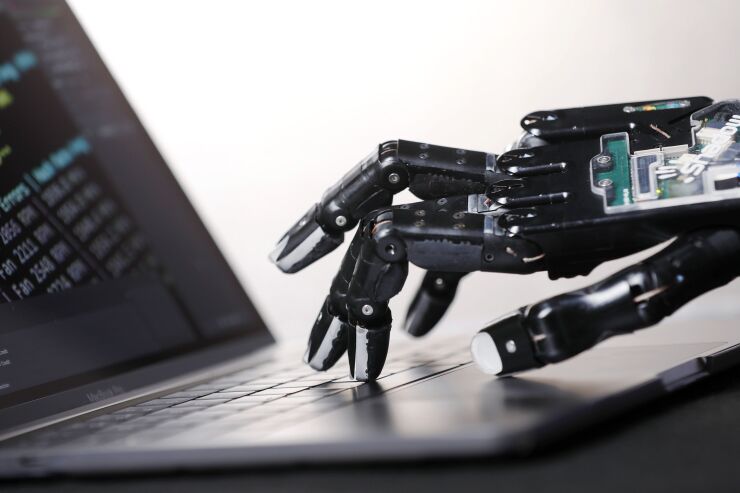The use of artificial intelligence within talent acquisition is expected to increase as more employers look to weed out unqualified job applicants with greater precision.
Whereas traditional hiring processes have huge amounts of variance, experts say AI models are concrete and consistent in quickly evaluating candidates on the same criteria, offering more valid predictors of success. The result is a more well-rounded workforce that benefits candidates as much as employers.
“We’re really seeing these kinds of interviews increase diversity,” reports Loren Larsen, chief technology officer of HireVue, whose hiring intelligence platform combines video interviews with predictive, validated input/output science and AI.
AI engines have become better at getting the right job applicants to surface, explains Matt Poepsel, SVP of product with the Predictive Index, which offers talent-optimization software. “What’s helpful for the employer is that it increases their likelihood of getting to the best candidates, while reducing the overall expense that inevitably comes along with the screening process,” he says.
In its most rudimentary form, AI is primarily used around keyword matching for skills, education, knowledge, geography and other relevant fields of information. The technology is being applied to everything from scheduling job interviews to prompting for interview questions, as well as some aspects of onboarding.
“Now we’re starting to see examples of where the AI engines are being fed with things beyond the candidate’s own resume, and starting to scrape social profiles, LinkedIn and the broader web to create a more complete picture of candidates and make an even more informed recommendation,” Poepsel observes.
Finding the right fit
Employers are turning to HireVue and others to establish AI systems that will analyze videos of potential hires answering standard interview questions and assign them an evaluation grade based on predetermined traits, as well as each of the competencies required for the job.
HireVue designs job interviews with validated questions that measure how candidates score on various competencies, which may include communication skills, compassion, empathy and the ability to work in a team or make prudent decisions. The candidate vetting process also includes some video games that measure responses to certain questions.
Larsen’s mission is to pave the way for a highly predictive interview that’s free of many biases that show up when hiring decisions are based solely on a resume or personal connections made in interviews with candidates who may not actually be qualified.
That helps elevate the standing of someone who didn’t attend an ivy league school but did well at a state university, he suggests. Moreover, it’s helpful to candidates who aren’t very adept at writing a resume or schmoozing with an interviewer, as well as those who may not be able to take off work to interview. “They can interview after their kids go to bed or do it on a weekend,” Larsen says.
Recruiters can expect significant changes as technology reshapes the talent acquisition landscape. AI algorithms and bots could take over as many as 20% of recruiter jobs, Poepsel believes. But with menial parts of their work being handed off to computers, he sees growing opportunities for recruiters to serve as a trusted business advisor relative to talent and producers who recommend these solutions to clients.
Rather than simply post job descriptions on websites, screen resumes and hand recommendations to hiring managers, he says recruiters can free themselves up for more strategic tasks. They may include examining elements for long-term success in certain jobs, whether a new hire should be someone who’s capable of promotion and tying candidates to new business initiatives.






